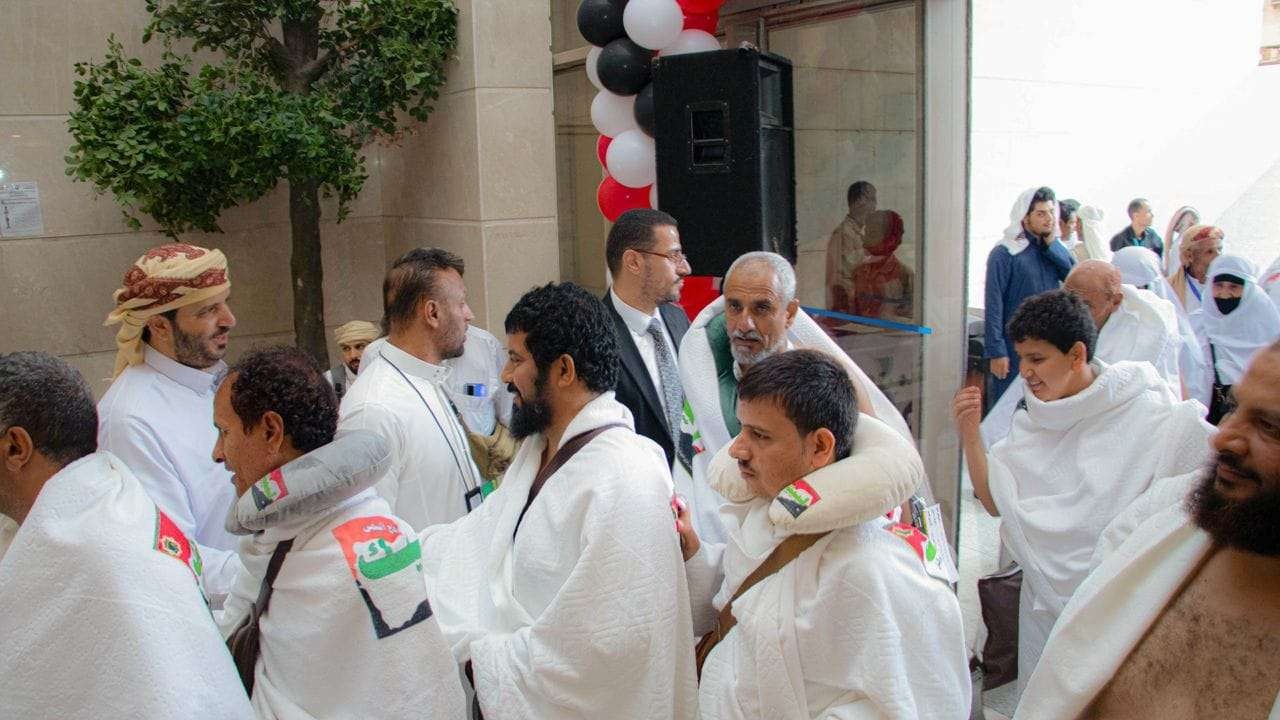


Barran Press
A recent report by the Yemeni Tourism Union, released on August 8th, 2023, claims that Yemeni pilgrims experienced the worst Hajj season in 20 years during their stay in the holy sites of Arafat. The report, obtained by Barran Press, details several key failures of the Hajj mission and the Ministry of Awqaf and Guidance, particularly during the stay in the holy sites.
The report, received by "Barran Press", highlights the Ministry's shortcomings in managing the Hajj mission's stay in the holy sites, stating that the success of any Hajj mission is measured by its performance in managing the pilgrims' stay and movement between the holy sites. However, the Yemeni Hajj mission faced numerous issues, starting with the provision of tents in Mina.
The report alleges that the tents provided were smaller than what pilgrims paid for, and many pilgrims found themselves without accommodation in both Mina and Arafat. The report also states that electricity was cut off in Mina on the day of Tarwiyah, with many air conditioners malfunctioning. Despite pleas from the pilgrims, a significant number spent the eighth day of Dhul Hijjah without electricity or air conditioning.
The report further criticizes the management of tent distribution among Hajj agencies in Arafat, stating that the tents were not allocated until hours before the pilgrims arrived. This resulted in many pilgrims lacking accommodation, with complaints of overcrowding in the limited bathroom facilities and long queues under scorching temperatures exceeding 50 degrees Celsius.
The report also details the delays in the arrival of buses on the day of Arafat, stating that this was the first time in 20 years that buses arrived after midnight, while other countries' pilgrims were already being transported. The report describes this as a "disaster" and accuses the Ministry of Awqaf of abandoning the agencies and their pilgrims, leaving them to deal with the problem independently.
The report further claims that the delays forced many Yemeni pilgrims, including women and elderly individuals, to walk from Arafat to Muzdalifah and then to the Jamarat.
The report also highlights other issues that arose during the Hajj season, starting with the delayed registration process. It states that for the first time since the swine flu pandemic, companies and agencies experienced a significant decline in registration, forcing them to offer discounts and pay commissions to intermediaries, resulting in limited profits or even losses for some.
The report criticizes the Ministry of Awqaf's decision to force agencies to rent accommodation in the Abraj Al-Bait complex in Makkah during the 1444 Hajj season, citing complaints from pilgrims about the distance to the Haram and the Jamarat. While the report acknowledges the Ministry's decision to allow agencies to choose accommodation freely this year, it also criticizes the Ministry's handling of air travel arrangements.
The report states that the Ministry mandated agencies to collect airfare and deposit it into the Awqaf account at the Al-Qatibi Bank in Aden, leading to a disagreement with the Yemeni Airways over the location of the deposit. The dispute was eventually resolved with Saudi intervention, but the report highlights the internal conflict within the Yemeni Airways, which resulted in increased prices for northern provinces and the suspension of services in those areas. This, according to the report, led to the detention of several planes at Sana'a airport and the suspension of flights for over 1000 pilgrims at King Abdulaziz International Airport in Jeddah.
The report concludes by highlighting the Ministry of Awqaf's failure to provide a budget plan for Hajj services, as evidenced by a leaked memo from the Minister of Finance to the Minister of Awqaf. The memo criticizes the Ministry of Awqaf for failing to provide a budget plan for operational and service costs, and for transferring over 337 million Saudi Riyals without following proper procedures or obtaining approval from the Ministry of Finance.
The Ministry of Awqaf responded by expressing surprise at the leak and stating that it would take legal action. It also defended its actions, claiming that it adheres to all regulations and procedures for receiving and transferring Hajj funds and that all financial transactions are subject to audit by the Central Audit and Accounting Authority.
The report highlights the ongoing struggles faced by Yemeni pilgrims during Hajj and raises serious concerns about the Ministry of Awqaf's ability to effectively manage the Hajj mission. It calls for a thorough investigation into the issues raised and for the Ministry to take immediate action to address the shortcomings and ensure a smoother and more efficient Hajj experience for Yemeni pilgrims in the future.